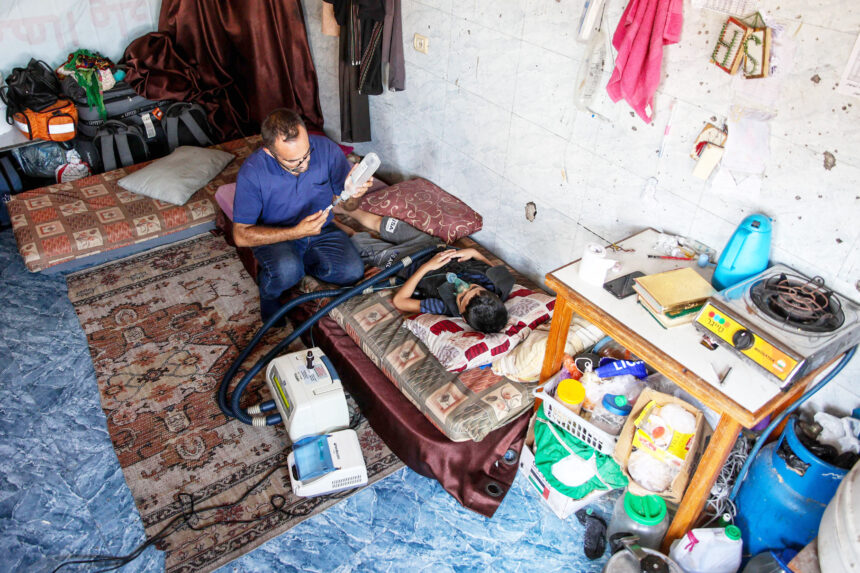A polio vaccination campaign officially began yesterday in the Gaza Strip ,where the United Nations has announced “humanitarian pauses” to allow for large-scale inoculation, a health official told AFP.
The campaign was announced after Gaza recorded its first polio case in a quarter of a century last month.
It officially began yesterday at three health centres in central Gaza, a day after an unspecified number of children were vaccinated in the
southern area of the Gaza Strip.
Children aged from one-day-old to 10 years arrived at the centres to receive the dose as drones flew overhead, said Yasser Shaabane, medical director of Al-Awda hospital in central Gaza.
“There are a lot of drones flying over central Gaza, and we hope this vaccination campaign for children will be calm,” said Shaabane.
The campaign began at 09h00.
The World Health Organisation (WHO) said on Thursday Israel had agreed to a series of three-day “humanitarian pauses” in northern, southern and central areas to facilitate vaccinations.
Israeli Prime Minister Benjamin Netanyahu, however, has insisted that these pauses were not amounting to any kind of ceasefire in overall fighting in Gaza.
The campaign aims to vaccinate more than
640 000 children in the besieged Palestinian territory, devastated by almost 11 months of war.
The campaign also aims to administer the first dose – two drops – to at least 90% of the territory’s children.
Polio, which had been eradicated in Gaza for 25 years, reappeared in the midst of the hostilities that began on 7 October after the Hamas attack on southern Israel.
WHO has despatched 1.26 million doses of the oral vaccine to Gaza already.
The health ministry in Hamas-run Gaza has identified 67 vaccination centres – mostly hospitals, smaller health centres and schools – in central Gaza, 59 in southern Gaza and 33 in northern Gaza, to administer the doses.
The second dose of the vaccine must be given four weeks after the first.
– Nampa/AFP


